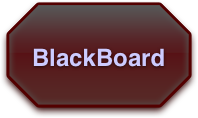Web-Enhanced Courses vs. Hybrid Courses vs. Online Courses
Web-Enhanced Courses and Hybrid Courses are "upgraded traditional" classes that meet in part in the classroom but also have a required Internet web component -- often using a class management system like Blackboard, and therefore do not meet as often in the classrooms as "regular traditional" classes. Both of these types of courses are often referred to as Blended Courses
The courses usually vary in online activities depending on the instructor and course requirements. You meet like a traditional class with an instructor in a classroom, but will part of the time be able to actively participate in class from home, work, a library, or the nearest campus computer lab. You may access course material, receive some instruction, do and submit some assignments, participate in discussions, and ask questions of the instructor, and other students, via e-mail, bulletin boards, and chat-rooms. In other words, students use the Internet for much of the learning by accessing class contents via the World Wide Web and Blackboard, but are the same as traditional classes in the terms of academic quality, credit hours, transferability, and cost.
As STC enrolls more and more students -- the college is running out of land, parking area, and classrooms -- more classes will go more and more ONLINE. STC is expected to have close to 50,000 students 2020. All regular courses taught by Dr. Nilsson have been set up as blended classes since spring semester 2009.
Online Courses are classes that do NOT meet regularly in the classroom but may have a minor required classroom component. Students use the Internet for most of the learning (not all -- the textbook is still an important non-online part) by accessing class contents via the World Wide Web and Blackboard, but are the same as traditional classes in the terms of academic quality, credit hours, transferability, and cost. All online courses taught by Dr. Nilsson are completely online (true online classes with no classroom component at all) since spring semester 2009. Environmental Biology, as taught by Dr. Nilsson, will from fall 2010 only be taught online.

Note the comment on College of DuPage's web-enhanced instruction page (page no longer available -- one of the down sides with the WWW) about the biology instructor who never again had "to hear the anguished cry from a student, 'But I lost my syllabus!' Any syllabus changes can be communicated in class, but made online so that every student has the latest version".
I have designed a web site called Dr. Nilsson's CyberOffice and used Blackboard to assist and facilitate student learning.
 Most aspects of the course can be found on the Environmental Biology Hub -- part of the CyberOffice, with course information and other web pages to promote student success. You do NOT need a password to access the CyberOffice. You DO need a password to access Blackboard.
Most aspects of the course can be found on the Environmental Biology Hub -- part of the CyberOffice, with course information and other web pages to promote student success. You do NOT need a password to access the CyberOffice. You DO need a password to access Blackboard.
![]()
![]()
All students at STC have a user ID and a password to access the Blackboard server. Blackboard is the safest and most convenient way to reach the instructor. You will use the Blackboard (WebCT) bulletin boards to turn in several assignments, and for class discussions, reading comments, and critical thinking activities that allow interchanging of views -- sometimes called Internet Activities, because it is designed to include the use of resources on the Internet.